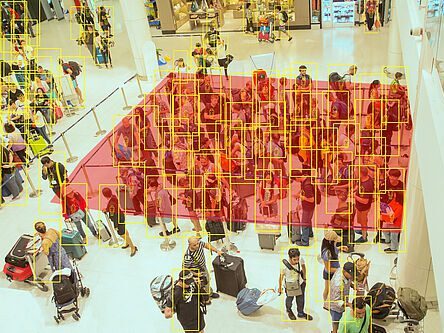A new European study has found that two-thirds of Brits support CCTV as a crime-fighting tool and don’t feel cameras infringe on civil liberties.
The survey by YouGov, commissioned by Security Products from Siemens, questioned more than 6,000 adults in France, Germany, Spain, Sweden and the UK.
Those polled were given two statements and asked to agree or disagree. The first read ‘I believe that the widespread use of CCTV cameras infringes on people’s civil liberties’ and the second statement was ‘I agree that CCTV cameras are useful in reducing crime and providing evidence to the police’.
For the UK it was found that 65 per cent of respondents do not think CCTV affects their civil liberties, and 81 per cent stated they believe the use of cameras helps police fight crime.
Sweden led the way in declaring that CCTV did not curtail freedom, at 69 per cent, followed by the UK (65 per cent), France (57 per cent) and Germany (45 per cent).
On viewing CCTV as a crime-fighting tool, 89 per cent answering positively in Spain followed by Sweden (88 per cent), France (83 per cent), the UK (81 per cent) and Germany (77 per cent).
Peter Hawksworth, CEO of security products from Siemens, said: “The overwhelming agreement that CCTV acts as crime deterrent suggests that people are making a ‘trade off’ by balancing their concerns about civil liberties against the perceived benefits that CCTV brings to the detection and prosecution of crime.
“The figures also give a strong indication of the confidence the public has in the effectiveness of this technology and the role it plays in keeping them safe from harm.”
The study showed that across Europe younger people had greater concern for CCTV’s effect on civil liberties, though this was found to be less pronounced in the UK.
Hawksworth added: “We are usually led to believe that there is an even split between those for and against CCTV. However, our research shows that the issue is far more complex than a simple yes or no argument. The key for those deploying it is to do so sensibly and have a justifiable reason for implementation, something that governments across Europe will hopefully provide guidance on.”


























